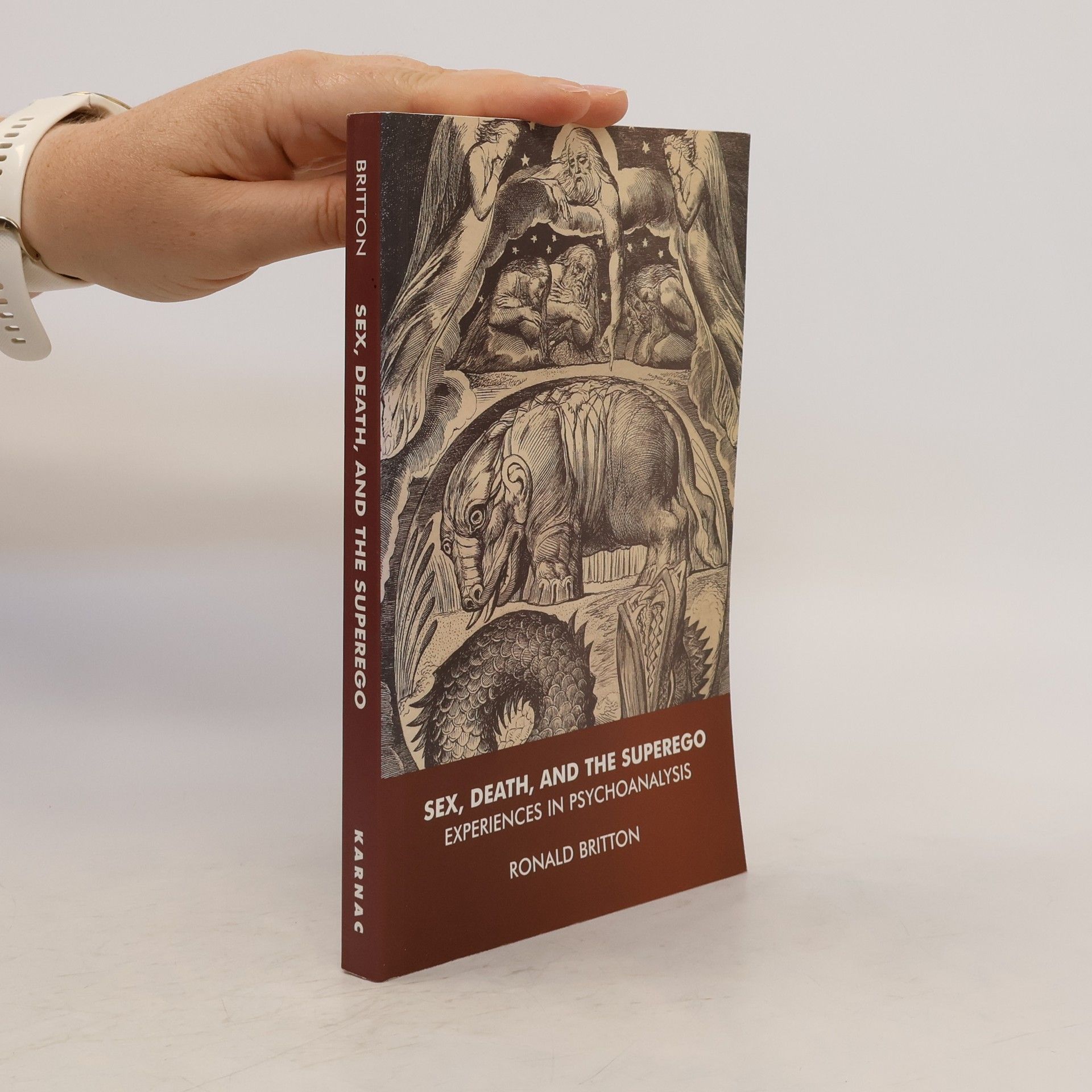This book is a personal reappraisal of psychoanalytic theories in the light of clinical experience, divided into three parts. The first is about sexuality; the second deals with the ego and the super-ego; the third is on narcissism and the narcissistic disorders.
Ronald Britton Livres





Sex, Death, and the Superego
Updating Psychoanalytic Experience and Developments in Neuroscience
- 152pages
- 6 heures de lecture
The book offers a comprehensive reappraisal of psychoanalytic theories, structured into three sections: "Hysteria," "The ego and superego," and "Narcissism." It enhances the discussion with insights on the brain, mind, and self, as well as the death instinct. Additionally, it explores the biological, psychological, and sociological foundations of gender, providing a multidimensional perspective on these critical concepts in psychoanalysis.
Welche Bedeutung kommt dem Ödipuskomplex in der Theorie und Praxis der kleinianischen Psychoanalyse zu? Mit dieser Frage setzen sich Britton, Feldman und O’Shaughnessy – prominente Psychoanalytiker*innen aus der Schule Melanie Kleins – auseinander. Neben Melanie Kleins klassischer Arbeit »Der Ödipuskomplex im Lichte früher Ängste« aus dem Jahr 1945 versammelt der vorliegende Band Texte, die die gravierenden Veränderungen in der Behandlungstechnik in den Blick nehmen: Die Aufmerksamkeit konzentriert sich auf die frühen, primitiven und psychotischen Formen des ödipalen Konfliktes und die Versuche der Patient*innen, Psychoanaytiker*innen zum Mitagieren im eigenen ödipalen Drama zu verführen.
Sexualität, Tod und Über-Ich
- 260pages
- 10 heures de lecture
Das Buch beginnt so, wie auch die Psychoanalyse begonnen hat: mit Überlegungen zur Hysterie und Sexualität. Im zweiten Teil geht es dann um das Ich und das Über-Ich, also um Überlegungen, die Freuds Schriften in seinen mittleren Jahren dominiert haben. Und schließlich wird das Problem des Narzißmus und der narzißtischen Persönlichkeitsstörungen diskutiert, also die Themen, die seit der Mitte des 20. Jahrhunderts im Vordergrund der Psychotherapie stehen.